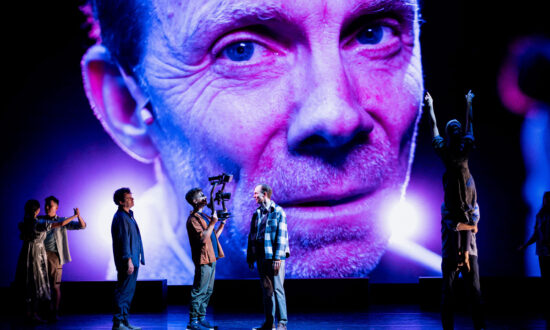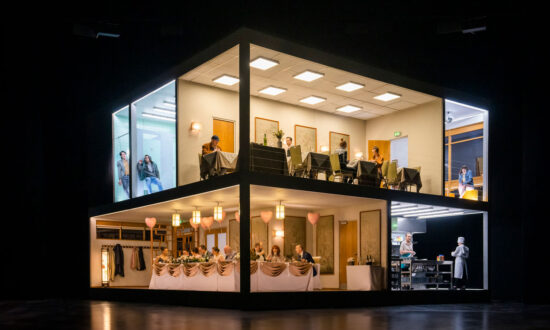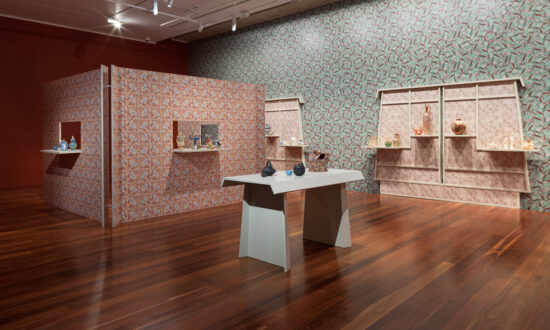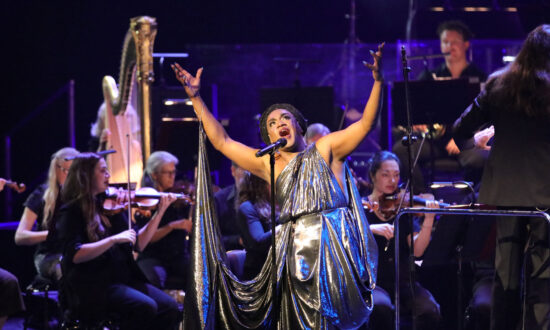Hare’s 2018 play, I’m Not Running, about an independent female candidate campaigning on national health reform who gains the balance of power, failed at the National Theatre in London, yet its politics mirrored the rise of the “Teals” in last year’s Australian federal election.
Hare appeared at Adelaide Writers’ Week yesterday in a session hosted by Bob Carr, the former NSW Labor Premier, senator and foreign minister.
Carr said any of the Teal candidates could have been the character in Hare’s play, which 50,000 people came to see but was panned by critics.
“We had nothing to put on the poster,” said Hare, who was knighted in the late 1990s. “Not one single good review did that play get, not one. When we looked for a quote to put on the poster, we couldn’t find one: they were all antagonistic.”
The play was an example of him sensing something was going on, but – not to be immodest, he said – coming out ahead of public opinion.
“To me, that’s the playwright’s job. It’s not to express the common wisdom.”
Hare said plays that told audiences about misogyny or racism, or that argued homosexuals should be allowed to live freely, left him wondering why he was there.
“The job of the playwright when I was young was always to be in advance – Samuel Beckett was way in advance, John Osborne was way in advance, Harold Pinter was way in advance.”
With his wife, former French fashion designer Nicole Farhi, in the front row, Hare said there was nothing a playwright could do about fashions in theatre, least of all try to follow them.
He said the National Theatre once showed six plays in a week that spanned dramatic literature but had abandoned many works no longer thought acceptable to modern tastes.
“On the other hand, if you try to play to that, you will produce terrible work. That is the paradox of fashion and the theatre.”

Get InReview in your inbox – free each Saturday. Local arts and culture – covered.
Thanks for signing up to the InReview newsletter.
Two of Hare’s recent television screenplays, Collateral (Netflix) and Roadkill (Stan), are very modern stories; one is about deep fake surveillance, the other a politician negotiating a defamation case, a mysterious hit-and run in Washington, and an affair.
Roadkill also touched on the failed law-and-order policy of locking people up, and the futility of imprisoning those who were not dangerous, a subject Hare returns to.
“I try to write about (prison reform) over and over because it shocks me so much and [in Roadkill] a conservative politician says, ‘this is not efficient, it is not humane and it doesn’t work. Let’s do something about it’,” Hare said. “And yet, however much you bang on about the prisons, it is a subject that, unfortunately, politicians are unwilling to take up.”
Adelaide Writers’ Week continues in the Pioneer Women’s Memorial Garden until March 9. InReview will be reporting from Writers’ Week each day – read coverage of other sessions here.
Read more 2023 Adelaide Festival stories and reviews here on InReview.
Support local arts journalism
Your support will help us continue the important work of InReview in publishing free professional journalism that celebrates, interrogates and amplifies arts and culture in South Australia.
Donate Here




